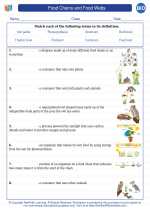Food Chains and Food Webs -> producer
Producer
In ecology, a producer, also known as an autotroph, is an organism that is capable of producing its own food through the process of photosynthesis or chemosynthesis. Producers are the foundation of the food chain and are vital for sustaining life on Earth.
Photosynthetic Producers
Photosynthetic producers, such as plants, algae, and some bacteria, utilize the energy from sunlight to convert carbon dioxide and water into glucose and oxygen. This process occurs in the chloroplasts of plant cells and is represented by the following equation:
6CO2 + 6H2O + light energy → C6H12O6 + 6O2
Chemosynthetic Producers
Chemosynthetic producers, found in environments such as hydrothermal vents and certain soil bacteria, harness the energy from inorganic chemical reactions to produce organic compounds. These organisms do not rely on sunlight and perform chemosynthesis using substances such as hydrogen sulfide or methane as energy sources.
Study Guide
- Define the term "producer" in the context of ecology.
- Explain the process of photosynthesis and its significance to producers.
- Provide examples of photosynthetic and chemosynthetic producers.
- Discuss the role of producers in the food chain and ecosystem.
- Compare and contrast photosynthetic and chemosynthetic producers in terms of energy sources and environments.
- Examine the impact of producers on the global carbon and oxygen cycles.
Understanding the role of producers is crucial for comprehending ecosystem dynamics and the interdependence of living organisms. By mastering the concept of producers, you can gain insights into the functioning of ecological systems and the importance of sustaining these vital organisms.
[Producer] Related Worksheets and Study Guides:
.◂Biology Worksheets and Study Guides High School. Food Chains and Food Webs
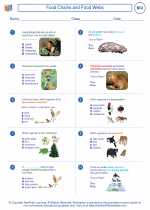
 Worksheet/Answer key
Worksheet/Answer key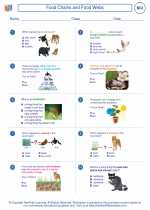
 Worksheet/Answer key
Worksheet/Answer key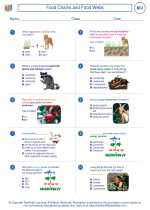
 Vocabulary/Answer key
Vocabulary/Answer key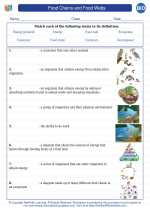
 Vocabulary/Answer key
Vocabulary/Answer key